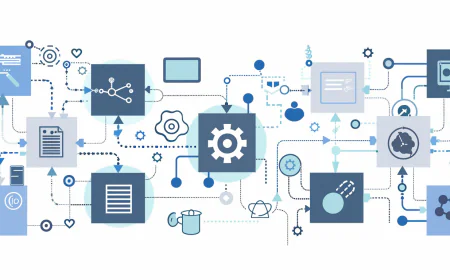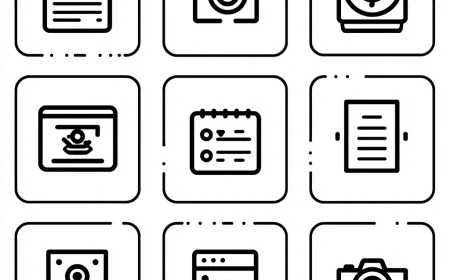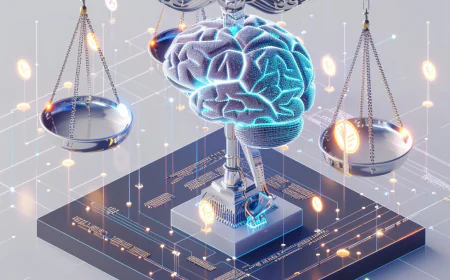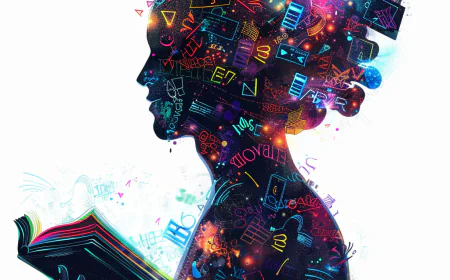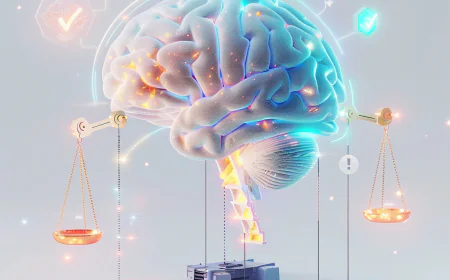Ethical AI in Content Creation: Best Practices and 2025 Trends for Writers, Marketers, and Educators
Discover ethical guidelines for using AI chatbots in content creation. Learn to avoid plagiarism, ensure accuracy, and balance human input with 2025 trends for writers, marketers, and educators.

# Ethical AI in Content Creation: Best Practices and 2025 Trends for Writers, Marketers, and Educators
## Why Ethics Matter in the AI-Powered Content Era
In 2025, AI chatbots like Grok 4 and Claude are transforming how we create content, boosting efficiency for writers, marketers, and educators. But with great power comes responsibility—misuse can lead to plagiarism, misinformation, or eroded trust.
This guide explores key ethical considerations, best practices, and emerging trends to help you harness AI responsibly while delivering high-value content.
## Key Ethical Considerations for AI Content Creation
Ethical AI use ensures content remains authentic, accurate, and human-centered. Ignoring these can harm your reputation or even invite legal issues.
### Avoiding Plagiarism and Protecting Intellectual Property
AI tools often pull from vast datasets, risking unintentional copying. Treat AI outputs as drafts and refine them with original insights, such as proprietary data from surveys or personal anecdotes. Always cite sources and use tools like Grammarly's plagiarism checker to verify originality.
Legal risks include unclear ownership of AI-generated works, as most laws require human creators for copyrights. For marketers, this means establishing internal policies to avoid disputes in campaigns or branded content.
### Ensuring Accuracy and Combating Bias
AI "hallucinations"—fabricated facts—are a major pitfall. Fact-check all outputs against credible sources and implement multi-layer human reviews to catch errors. Bias in AI models can perpetuate discrimination, so regularly audit tools for fairness.
Educators should teach students to cross-verify AI info, turning potential pitfalls into learning opportunities.
### Balancing Human Input for Authenticity
Over-reliance on AI leads to generic, soulless content lacking emotional depth. Use AI for ideation or drafts, but infuse human expertise—like real-world examples or expert quotes—to maintain voice and E-E-A-T (Experience, Expertise, Authoritativeness, Trustworthiness).
Writers and marketers: Collaborate with subject matter experts via platforms like LinkedIn to add nuance AI can't replicate.
## Best Practices for Responsible AI Use
Adopt these strategies to integrate AI ethically into your workflow.
- **Start with Clear Prompts**: Specify tone, audience, and structure to guide AI toward relevant outputs. Refine results iteratively.
- **Disclose AI Involvement**: Be transparent—e.g., note "AI-assisted draft, human-edited for accuracy"—to build trust.
- **Layer Human Oversight**: Use AI for research or repurposing, but always have editors or SMEs review for quality and ethics.
- **Develop an Ethics Policy**: 67% of top brands have guidelines for AI use; create yours covering disclosure, bias checks, and compliance.
- **Leverage Tools Mindfully**: Pair AI like Jasper for ideation with human tools like Hemingway for style polishing.
For educators, incorporate AI ethics into curricula, using scenarios to discuss accountability and privacy.
## 2025 Trends: AI Tips for Writers, Marketers, and Educators
AI is evolving toward personalization and sustainability, but ethics remain central.
### Trend Spotlight: Personalized and Predictive Content
AI analyzes data for tailored content, like customizing blog posts for segments. Marketers: Use tools like HubSpot for predictive analytics to boost engagement.
Tip: Optimize for voice search with conversational keywords, ensuring ethical data use without invading privacy.
### Trend: AI Repurposing and SEO Optimization
Repurpose content efficiently—e.g., blog to video via Pictory—but avoid over-saturation with generic AI spam. Writers: Focus on value-driven SEO to evade penalties.
Educators: Teach repurposing as a skill, emphasizing originality in multimedia assignments.
### Comparison Table: AI Tools for Ethical Content Creation in 2025
| Tool | Key Ethical Feature | Best For | Approx. Price |
|---------------|--------------------------------------|---------------------------|---------------|
| **Creaitor** | Bias detection and disclosure prompts| Marketers & Writers | $19/month |
| **Jasper** | Human-AI collaboration workflows | All Audiences | $39/month |
| **Grammarly**| Plagiarism and accuracy checks | Educators & Writers | $12/month |
| **Semrush** | SEO ethics audits | Marketers | $129/month |
These tools prioritize transparency and human input.
## Conclusion: Ethical AI Drives Lasting Impact
In 2025, ethical AI content creation isn't optional—it's essential for trust, innovation, and compliance. By avoiding plagiarism, ensuring accuracy, and balancing human creativity, you'll produce content that resonates and stands out.
So what? Responsible AI saves time while preserving authenticity, giving you a competitive edge in a saturated digital world.
What's Your Reaction?
 Like
0
Like
0
 Dislike
0
Dislike
0
 Love
0
Love
0
 Funny
0
Funny
0
 Angry
0
Angry
0
 Sad
0
Sad
0
 Wow
0
Wow
0
